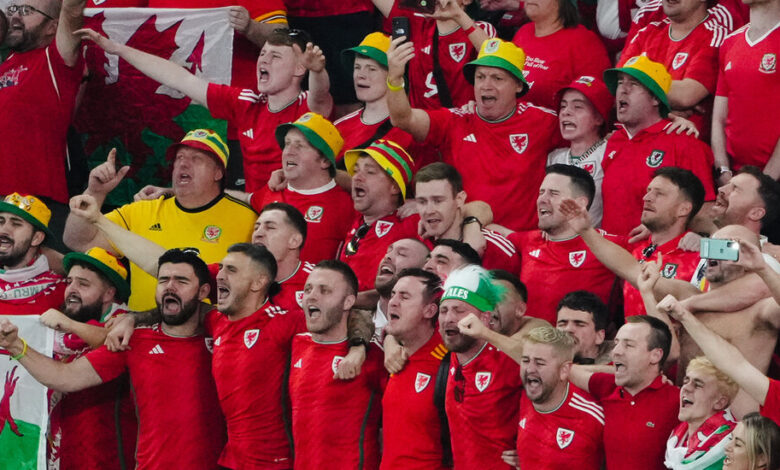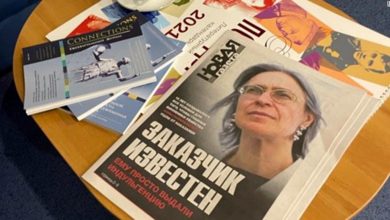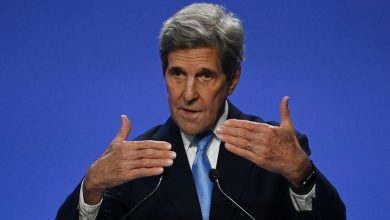$150 World Cup jersey made by workers Get $2.27 a day

When the World Cup in Qatar opened last week, millions of fans wore jerseys priced between $90 and $150 sold by Nike and Adidas, the official outfit suppliers of this year’s tournament. The players, dressed in new, brightly colored uniforms, donned shiny boots and shoes that retail for more than $200.
But how much do the people who make these items get paid?
In the case of 7,800 workers at the Pou Chen Group factory in Yangon, Myanmar, a supplier of soccer shoes to Adidas, the answer was 4,800 kyat, or $2.27, per day.
The Myanmar factory highlights the ongoing struggle of many of South Asia’s 40 million garment workers, who have long struggled with poor wages and working conditions, and their troubles. has been exacerbated by the pandemic. Now, with the world’s largest sporting event underway, efforts by some workers to improve their working conditions have been met with resistance and harsh punishment.
After workers started to go on strike in October, demanding a daily wage of $3.78, factory managers called soldiers into the complex and then fired 26 workers. They include 16 members of the factory union, who are said to have led the strike by more than 2,000 workers.
In interviews last week, several workers said they believe the factory is taking advantage of the opportunity to punish workers for engaging in organized labor, at a time when the military junta is in power. of Myanmar is seeking sanctions. dismantling democratic structures.
At the same time, rising inflation and a weakening currency are putting pressure on the livelihoods of Myanmar people. Since last year’s coup, the kyat has fallen more than 50% against the dollar and the cost of groceries, transportation and housing has skyrocketed. One worker, in poor health, said she fasted for three days until colleagues bought her some.
Another worker, 22, hoping to get her job back, spoke on condition of anonymity because she feared retaliation by her employer. “We worry a lot about paying rent and sending money home to the family so they can survive,” she said. “It was difficult before, that’s why we asked for more money. And now, without our jobs, it’s a lot harder. I don’t have enough money to eat.”
In an emailed statement from Pou Chen’s headquarters In Taiwan, the company says it complies with local laws and regulations in handling employees’ wages and personnel matters, and respects workers’ right to collective bargaining.
“We are going through the arbitration process with the claimants under Myanmar’s legal process,” the email said, referring to the laid-off workers.
Adidas also released a statement. “Adidas has strongly opposed this layoff, which violates workplace standards and our longstanding commitment to upholding workers’ freedom of association,” the company said. . “We are investigating the legality of the supplier’s actions and we have called on Pou Chen to immediately reinstate the laid-off workers.”
Most Western fashion and sportswear brands do not own production facilities, instead contracting with independent factories or suppliers, often in the Southern Hemisphere, to produce garments. their wear. This means that they are not technically the employers of these workers and therefore are not legally responsible for enforcing labor standards or human rights.
Some companies, such as H&M, Adidas, and Nike, have recently made parts of their supply chains more visible by Publish factory supplier information for their apparel and Adidas provides a separate list of apparel suppliers for the World Cup. Nike, which makes kits (so-called football uniforms) for 13 World Cup teams such as the United States, England and Brazil, does not publish a separate list of World Cup suppliers, making it difficult to Tracking where they are made becomes more difficult.
What we consider before using anonymous sources. Do the sources know the information? What is their motivation to tell us? Have they proven reliable in the past? Can we verify the information? Even after satisfying these questions, The Times still uses anonymous sources as a last resort. Reporters and at least one editor know the identity of the source.
And transparency about suppliers does not guarantee accountability throughout the fashion supply chain, which has long been plagued by union busts — activities aimed at preventing or disrupting the formation of unions or membership expansion efforts.
Trax Apparel, a factory in Cambodia where 2,800 workers manufacture soccer jerseys for Adidas as well as for the English football team Manchester United, lay off eight workers by 2020 after they formed unions to seek better working conditions. The plant’s management has said it will only reinstate four of the eight people and only if the union agrees not to fight for the others to be reinstated or for a full refund. Seeing no other solution, the union signed an agreement to waive these rights.
“I kept waiting for a call, but it never came,” says Sophal Choun, 41, who earns $7 a day using a sewing machine at the factory. “It took a year and a half to find another job – I had to ask my siblings to help raise two young children and take out a loan to continue with the very high premiums I am currently struggling with. scramble to pay.”
She added: “I believe in unions because I know we need protection. Now, many days I just cry and cry.”
Trax Apparel, the owner based in Thailand, did not respond to a request for comment.
The predicament of garment workers is among the serious social problems that have come to light during this year’s World Cup. A storm of criticism has been leveled in Qatar over human rights issues, including the authoritarian monarchy’s criminalization of homosexuality and exhaustive documentation. immigrant labor abuse.
Seven European countries, including Britain and Germany, have planned to wear rainbow-colored armbands with the phrase “One Love” to show support for minorities, including LGBT people. But they stepped back last week after FIFA, the governing body of international football, said that the armband violated the strict rules of the league’s uniforms and that any player wearing the armband would be given a yellow card, essentially warnings for misconduct that may result in suspension.
However, the German players managed a protest of sorts by cover your mouth in a team photo before the game. And Hummel did a monochrome, no sponsor suit for the Danish players oppose Qatar.
Some who welcomed these protests thought that the predicament of the sewing workers behind the World Cup kits should also be recognized.
Thulsi Narayanasamy, the nonprofit’s international advocacy director, said: “While there has been considerable information about the conditions faced by migrant workers in Qatar, it is not entirely clear. focused on serious abuses of rights by garment workers making World Cup jerseys.” Workers’ Rights Association. “The ability of workers to unite to ensure better conditions in their factories is a fundamental human right.”




